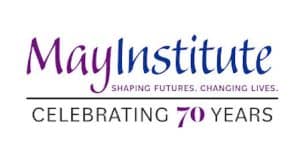May Institute marks 70th year serving individuals with autism

In 1955, after Marie Ann May and her husband, Jacques May, M.D., realized that autism treatment for their seven-year-old twin sons was nonexistent beyond lifelong institutionalization, they set out to provide a new option, founding a small, community-based school in Chatham, Mass. At the time, autism was considered a rare disease. The term had been coined in 1911, but the disorder was formally identified in 1943. Little was known of the causes, and treatment was based on behavior modification and, in some cases, included harsh punishment or electroshock therapy. "In the 1950s, there was little understanding of autism," said Lauren C. Solotar,...
Want to keep reading this article from New England Psychologist?
Login below or subscribe today to support independent journalism!
